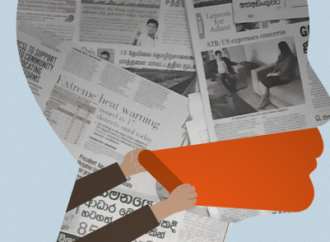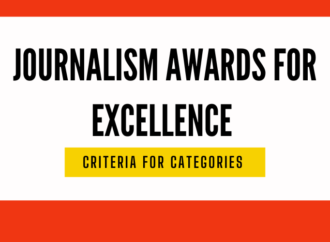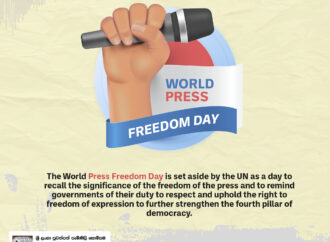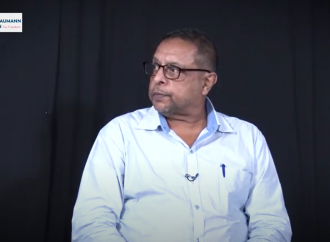Mr. Peter Feeney, Press Ombudsman, Office of the Press Ombudsman, Dublin, Ireland questions concerning publication of upheld complaints where the offending article has been published in both print and digital editions. He adds, the current practice requires complainants to provide them with a copy of the article the subject of the complaint. If the complainant
Mr. Peter Feeney, Press Ombudsman, Office of the Press Ombudsman, Dublin, Ireland questions concerning publication of upheld complaints where the offending article has been published in both print and digital editions. He adds, the current practice requires complainants to provide them with a copy of the article the subject of the complaint.
If the complainant only sends them a link to the online version of the article they treat this as a complaint about the online version only and if the complaint is upheld the publication is only required to publish the decision in its online edition and not in its print edition.
Q: Do you require complainants to provide your office with a copy of the article they wish to complain about?
A: Mr. Pat Perkel, Executive Director, National News Media Council, Toronto, Ontario, Canada (NNMC): A link is sufficient for a complaint about an online article. For print articles, complainants frequently submit a scanned version
A: Ms. Sakari Ilkka, Finnish Press Council, Finland: Yes. If it’s digital article a link to the article is sufficient.
A: Mr. Pieter Knapen, Secretary-General, Council for Journalism, Brussels: Complainants must provide a copy of the article or the correct references (media, title and date). For online articles they must provide a link or screenshot of the article or the correct references (media, title and date).
Q: If the article has been published in print and online do you require copies of both?
A: NNMC: We are satisfied with a link to the online version unless there is a difference between it and the print version. To date, those differences have been in headline or photo, and of course the difference that corrections can be quickly made to the online version.
A: Finnish Press Council: We require the print copy and at least a link to the online version. If the online version is behind a paywall we might ask the complainant to provide us with a copy.
A: Council for Journalism, Brussels: We require copies or references for both. If the complainant only mentions the print-article, we will only deal with that. If he only mentions the online-article, we only deal with that, even though the articles are the same.
That makes sense. For example, we currently have a complaint from an public servant suspected of fraud. He doesn’t mind if his name would have been mentioned in the print edition, but he filed a complaint because his name was mentioned in the online article. He filed the complaint because the article remains search-able and, for example, potential employers look up his name on Google when he applies for a job. He wants to make use of the right to be forgotten, and in print this does not play a role for him.
Q: If you only receive an online article do you treat the complaint as only about the online version of the article?
A: NNMC: Yes
A: Finnish Press Council: Yes, unless the complainant mentions the print version in the complaint. In that case we ask the complainant to provide us with a copy of the print article too. If he/she doesn’t do that in given time frame (usually one week), we treat the complaint as a complaint about the online version only.
A: Council for Journalism, Brussels: Yes, only the online article.
Q: Do you ever consider a complaint about an article which has been published in print when you only have a copy of the online version of the article?
A: NNMC: We would accept the online version, provided the complainant and news organization confirm that both versions are the same.
A: Finnish Press Council: We only consider complaints about articles that we have, because it’s always possible that there are differences between print and online versions. So if a print version of the article exists but the complainant does not provide us with it, we treat the complaint as a complaint about the online version only.
A: Council for Journalism, Brussels: If the complainant explicitly states that the article was also published in the print edition and that he also submits a complaint against it, but that he has no copy, we will look up the print-article.
Q: Does your office have any obligation to go to public libraries to seek copies of articles?
A: NNMC: No
A: Finnish Press Council: No.
A: Council for Journalism, Brussels: No, but we have access to a digital system or database with all articles from Flemish newspapers and magazines. That was set up by the media themselves. Organizations can subscribe and quickly find out what is being published about them. We have free access. The system has recently been taken over by the press agency Belga and is now operated by Belga.
Q: Do you ever require an editor to provide your office with a copy of an article that is the subject of a complaint?
A: NNMC: The need for such a request has not arisen for us
A: Finnish Press Council: Yes. The ground rule is that the complainant must send us the articles attached to the complaint. However in some cases we require the articles from an editor – in cases we think that the articles are out of reach to the complainant (for example original versions of the online articles that have been amended). In addition to papers Finnish council considers complaints about TV and radio. When a complainant wishes to complain about TV or radio, we only require her/him to tell us an accurate broadcasting time. After that we turn to the editor and require her/him to send us an audio/video clip.
A: Council for Journalism, Brussels: No, but if we would ask so, they would make it available. They all cooperate loyally with the press council
Q: If part of your complaints process requires publishers to publish decisions do you require editors to publish those decisions in both print and online?
A: NNMC: We require the news organization to publish a summary of a decision to uphold a complaint, in a location of the printed paper normally used for notices of correction. The summary must have a link to the full decision on the NNC website. The decision summary and link to the full decision must also be appended to the article if it is online.
A: Finnish Press Council: It does not matter whether the article has been published in both print and online or only print or online. If the complaint is about the online version only, we require editors to publish the decision online only. If the complaint is about the print, we require editors to publish the decision both print and online (if the paper has an active online version). In the Finnish system they need to publish the ‘reprimand’ decisions only.
A: Council for Journalism, Brussels: If the complaint was against an online article, they must publish the decision online.
If the complaint was against a print article, they can choose to publish the decision in print or online. Initially media mostly opted for publication online, but more and more they opt for publication in print, because the decision is then gone after one day.
If the complaint was against an online and print article, they have the choice, but they usually publish it online.
AIPCE: Alliance of Independent Press Councils of Europe



















Leave a Comment
Your email address will not be published. Required fields are marked with *